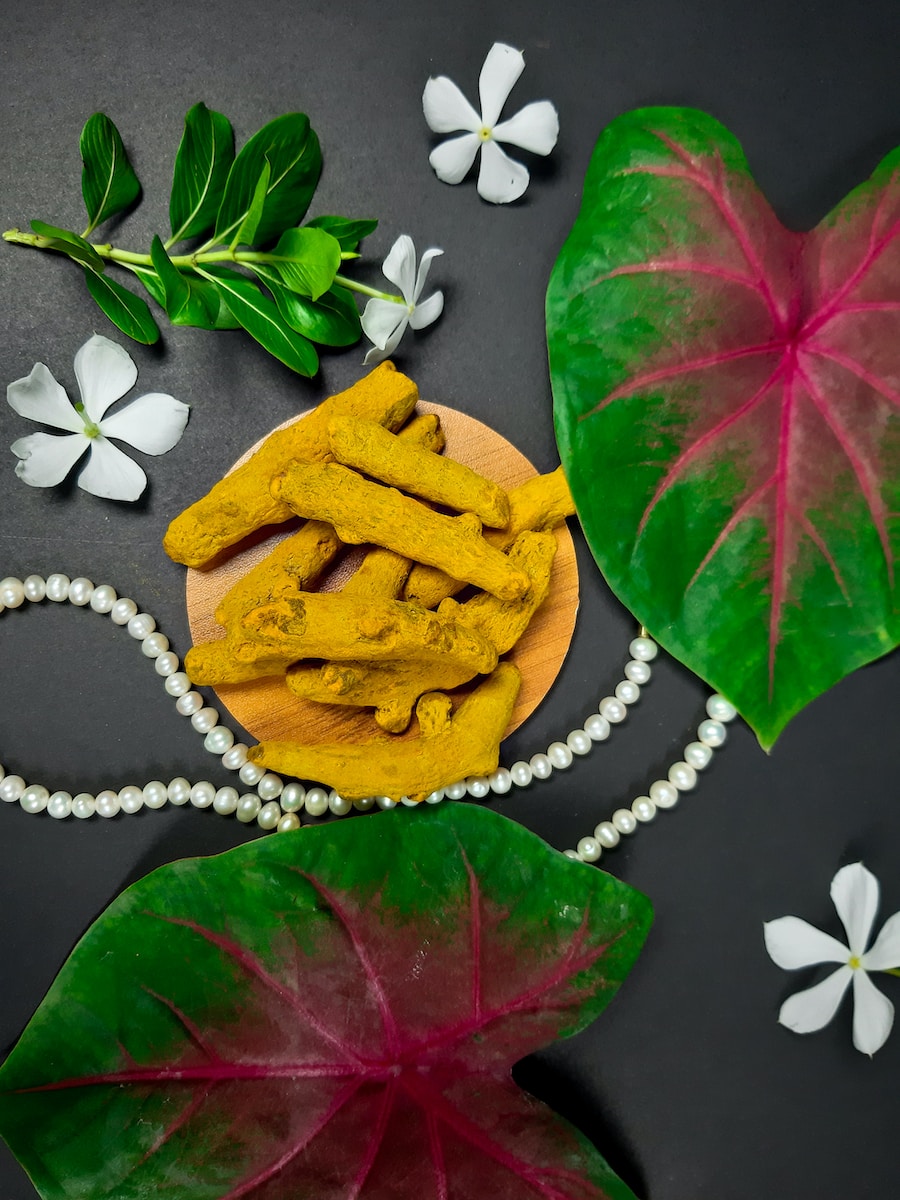As someone who regularly takes turmeric supplements, I have observed a strange side effect: my urine occasionally appears darker than usual. This has made me question if turmeric is responsible for this occurrence.
After conducting some research, I have discovered that dark urine can indeed be a potential side effect of turmeric consumption. In this article, I will delve into the science behind dark urine, explain how turmeric can cause this side effect, and explore other foods and supplements that can also contribute to dark urine.
To begin, it is important to understand that urine can vary in color based on a variety of factors, including hydration levels, diet, and certain medications or supplements. While light yellow to amber-colored urine is considered normal, dark urine can be a sign of dehydration, liver or kidney problems, or the consumption of certain foods or supplements.
In the case of turmeric, the pigment responsible for its vibrant yellow-orange color can pass through the kidneys and into the urine, potentially causing it to appear darker than usual. However, it is important to note that dark urine alone is not necessarily a cause for concern, and that other symptoms or changes in urine color should be monitored and evaluated by a healthcare professional.
Key Takeaways
- Turmeric consumption can cause temporary darkening of urine due to the yellow pigment curcuminoids being excreted through urine.
- Dark urine alone is not necessarily a cause for concern, but changes in urine color or other symptoms should be monitored and evaluated by a healthcare professional.
- Dehydration is a common cause of dark urine, and staying hydrated can help prevent this potential side effect of turmeric consumption.
- Understanding how curcumin affects the body can provide insights into whether or not it’s responsible for causing dark urine, but the change in urine color caused by turmeric is harmless.
The Science Behind Dark Urine
Do you ever wonder why your pee looks like the color of strong tea? Well, urine color changes depending on various factors. One of the primary reasons for dark urine is dehydration. When you don’t drink enough water, your urine becomes more concentrated, resulting in a darker color.
Additionally, some foods and medications can alter the urine color, and the pigments present in them can give a different shade to your urine. The color of urine is determined by a pigment called urochrome, which gives it a yellow color. When you are hydrated correctly, your urine appears pale yellow or straw-colored.
However, when you are dehydrated, your urine becomes more concentrated, and the urochrome pigment becomes more concentrated, resulting in a darker yellow or amber color. This change in color is a sign that you need to drink more water.
Now let’s talk about turmeric and how it can affect the color of your urine.
Turmeric and Dark Urine
As I delve into the topic of turmeric and dark urine, it’s important to understand the active ingredient in turmeric and its mechanism of action. Curcumin is the active ingredient in turmeric, which has been extensively studied for its beneficial effects on health. It’s known to possess potent antioxidant and anti-inflammatory properties, making it a popular supplement.
Understanding how curcumin affects the body could provide insights into whether or not it’s responsible for causing dark urine.
The Active Ingredient in Turmeric
You’ll be amazed to know that the active ingredient in turmeric, called curcumin, is not only responsible for its vibrant yellow color but also has numerous health benefits.
Curcumin is a polyphenol that has been shown to have anti-inflammatory, antioxidant, and anticancer effects. It has also been linked to improving brain function and reducing the risk of heart disease.
However, the benefits of curcumin can be limited by its poor bioavailability. This means that the body may not be able to absorb enough of it to reap its full benefits.
Researchers have tried various methods to improve the bioavailability of curcumin, such as combining it with other compounds or using specialized delivery systems.
In the next section, we will explore the mechanism of action behind curcumin’s health benefits.
The Mechanism of Action
By delving into the mechanism of action behind curcumin’s health benefits, you’ll uncover the incredible ways this powerful polyphenol can positively impact your body and mind.
When it comes to turmeric’s effects on urine color, it’s important to understand that this is not a direct result of the curcumin compound. Rather, the yellow pigment in turmeric called curcuminoids can be metabolized into water-soluble compounds that are excreted through urine, which can cause a temporary change in urine color.
However, it’s important to note that this change in urine color is completely harmless and is not an indication of any health problems. The body is simply excreting the excess turmeric compounds that it doesn’t need.
It’s also essential to keep in mind that turmeric and urinary excretion are not the only factors that can cause dark urine. Other foods and supplements, such as beets, blackberries, and B vitamins, can also have a similar effect on urine color.
Other Foods and Supplements that Can Cause Dark Urine
Hey, did you know that certain foods and supplements, like beets and vitamin B12, can also cause your urine to turn dark? This is because they contain pigments that are not fully metabolized by the body and are excreted in the urine.
Other foods and supplements that may cause dark urine include blackberries, rhubarb, and some laxatives.
It’s important to note that dark urine can also be caused by factors other than food and supplements. Caffeine intake and dehydration are possible causes of dark urine. When you’re dehydrated, your urine becomes more concentrated, which can give it a darker color. In addition, caffeine is a diuretic, which means it can increase urine production and concentration. So, if you consume a lot of caffeine and don’t drink enough water, you may notice your urine is darker than usual.
It’s always important to stay hydrated and monitor any changes in urine color or frequency. This information about other foods and supplements that can cause dark urine is important to consider, but it’s also important to understand the potential health implications of dark urine.
Potential Health Implications
Dark urine may indicate underlying health issues, so it’s important to pay attention to any changes in urine color or frequency. Turmeric, as well as other foods and supplements, can cause urine to become darker. However, it’s important to note that dark urine can also be a sign of potentially serious health risks.
- Dehydration: When the body is dehydrated, urine becomes more concentrated and darker in color.
- Liver and Kidney Issues: Dark urine can be a sign of liver or kidney problems, as these organs are responsible for filtering waste from the body.
- Infections: Certain infections, such as a urinary tract infection, can cause urine to become darker in color.
- Blood in Urine: In some cases, dark urine can be a sign of blood in the urine, which can indicate a serious medical condition.
It’s important to consult a healthcare professional if changes in urine color persist or are accompanied by other symptoms. In the next section, we’ll discuss how to mitigate the side effect of dark urine when consuming turmeric.
How to Mitigate the Side Effect
While the potential health implications of turmeric making your pee dark may be concerning, there are ways to mitigate this side effect. One of the most important things to do is to prevent dehydration. Dark urine can be a sign that you are not drinking enough water, and dehydration can cause a range of health problems. To prevent dehydration, it is important to drink plenty of water throughout the day, especially if you are taking turmeric supplements or consuming large amounts of turmeric.
Increasing your water intake is also key to preventing other potential side effects of turmeric, such as stomach upset or diarrhea. In addition to drinking water, you can also incorporate other hydrating foods and beverages into your diet, such as fruits, vegetables, and herbal teas. To help you stay hydrated, here is a table outlining some tips for increasing your water intake:
| Tips for Increasing Water Intake |
|---|
| Drink a glass of water with every meal |
| Carry a reusable water bottle with you throughout the day |
| Flavor your water with fruit or herbs for added interest |
| Set reminders on your phone to drink water at regular intervals |
By following these tips and making an effort to stay hydrated, you can help prevent the side effect of dark urine and ensure that you are getting the most out of your turmeric supplements or consumption.
Frequently Asked Questions
How much turmeric do I need to consume in order to notice a change in the color of my urine?
In order to observe a change in urine color, a turmeric dosage of at least 500 milligrams per day is recommended. The correlation between turmeric benefits and urine color change is due to curcumin, a compound found in turmeric.
Can turmeric cause any other side effects besides dark urine?
Turmeric may cause digestive issues and allergic reactions in some people. These side effects are unrelated to the discoloration of urine that turmeric consumption may cause. It is important to consult a healthcare professional before consuming turmeric regularly.
Is there a difference in the severity of dark urine caused by turmeric versus other foods and supplements?
Exploring the health benefits of turmeric, I compared its impact on urine color to other foods and supplements. The severity of dark urine may vary, but the benefits of turmeric for inflammation, digestion, and mood are well-documented.
Can drinking more water help alleviate the dark urine side effect of turmeric consumption?
Hydration vs. Turmeric: Which Wins? Clearing the Confusion: Dark Urine and Turmeric. Drinking more water can help alleviate the dark urine side effect of turmeric consumption. Adequate hydration can dilute the urine and reduce the intensity of the color.
Are there any other natural remedies or supplements that can help mitigate the dark urine side effect of turmeric consumption?
Exploring herbal alternatives and hydration methods can reduce the dark urine side effect of turmeric consumption. Other natural remedies include drinking water, cranberry juice, and green tea. These options can help maintain a healthy urinary system.
Conclusion
In conclusion, while turmeric has numerous health benefits, it can also cause dark urine due to the presence of curcumin. This is because curcumin is excreted in urine and can cause it to appear darker than usual.
However, it’s important to note that dark urine can also be caused by other foods and supplements such as beetroot, blackberries, and vitamin B supplements.
It’s interesting to note that according to a study published in the Journal of Nutrition and Metabolism, up to 51% of people who consume turmeric supplements report changes in urine color. While this side effect is generally harmless, it’s important to be aware of it and to speak to a healthcare professional if you experience any other concerning symptoms.
Overall, turmeric can be a beneficial addition to your diet, but it’s important to consume it in moderation and to be aware of any potential side effects.










